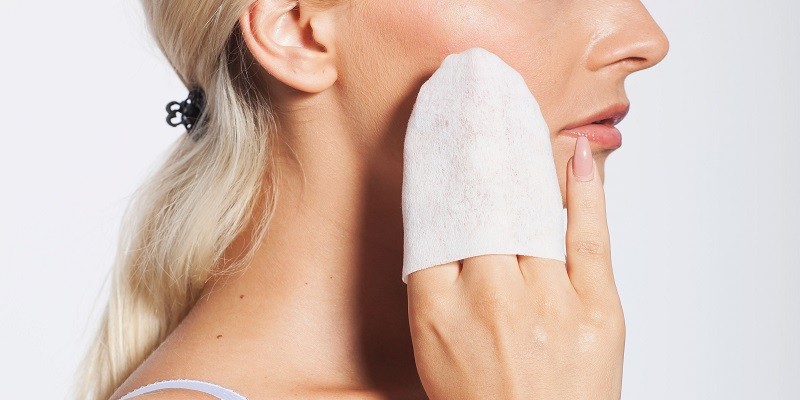Last Updated on June 18, 2025
In times of necessity, people often turn to unconventional solutions for everyday problems. One such scenario is running out of toilet paper and considering alternatives like makeup wipes. While makeup wipes are designed for facial use, their potential as a substitute for toilet paper raises several questions about their safety, effectiveness, and environmental impact. This article explores whether makeup wipes can be used on your bum, examining the pros and cons, health implications, and better alternatives.
The Composition of Makeup Wipes
Makeup wipes are pre-moistened towelettes designed to remove makeup, dirt, and oil from the face. They typically contain a mix of surfactants, emulsifiers, preservatives, and fragrances. Common ingredients include:
- Surfactants: These are cleansing agents that help dissolve makeup and oils.
- Emulsifiers: These help blend water and oil-based ingredients.
- Preservatives: Chemicals like methylisothiazolinone and parabens are used to prevent microbial growth.
- Fragrances: Added for a pleasant scent but can be irritating to sensitive skin.
Health Implications of Using Makeup Wipes on Your Bum
Skin Sensitivity and Irritation
The skin around the anus is sensitive and can be easily irritated. Makeup wipes, which often contain alcohol and fragrances, can cause burning, itching, and redness when used on this delicate area. A Reddit user shared their painful experience of using makeup wipes on their bum, describing a burning sensation that lasted for an hour due to the presence of alcohol and other irritants in the wipes.
Risk of Allergic Reactions
Makeup wipes can contain allergens that may not affect the face but can cause reactions when used on more sensitive areas. Ingredients like methylisothiazolinone have been flagged for causing allergic reactions, even in products labeled as “all-natural”. Using these wipes on your bum could lead to contact dermatitis or other allergic responses.
Hygiene Concerns
Makeup wipes are not designed to clean fecal matter effectively. They may smear rather than remove it, leading to poor hygiene and potential health issues like pruritus ani (itchy butt) and urinary tract infections (UTIs) in women. Proper cleaning is crucial to prevent these conditions, and makeup wipes may not provide the thorough cleaning required.
Environmental Impact
Makeup wipes are generally not biodegradable and can take up to 100 years to decompose. Flushing them down the toilet can cause severe plumbing issues and contribute to environmental pollution. They are a significant contributor to landfill waste and can end up in waterways, harming marine life.
Alternatives to Makeup Wipes
Bidets
Bidets are an excellent alternative to toilet paper and makeup wipes. They use a stream of water to clean the anal area thoroughly, providing a more hygienic and environmentally friendly solution. Bidets have been used for centuries and are highly effective in maintaining cleanliness.
Shower
Using a shower to clean your bum is another effective method. Directing the showerhead towards the anal area can help remove fecal matter more thoroughly than wipes. This method is particularly useful if you have had diarrhea and need a more comprehensive clean.
Reusable Cloths
Reusable cloths or towels can be a sustainable alternative. They can be washed and reused, reducing waste. However, it is essential to wash them immediately after use to maintain hygiene and prevent bacterial growth.
Baby Wipes
Baby wipes are designed for sensitive skin and are generally safer to use on the bum than makeup wipes. However, they should still not be flushed down the toilet and should be disposed of properly to minimize environmental impact.
Conclusion
While makeup wipes might seem like a convenient alternative to toilet paper in a pinch, they are not recommended for use on your bum. The potential for skin irritation, allergic reactions, and poor hygiene outweighs their convenience. Additionally, their environmental impact is significant, contributing to landfill waste and pollution.
For a more effective and sustainable solution, consider using bidets, showers, or reusable cloths. If you must use wipes, opt for baby wipes and dispose of them responsibly. Maintaining proper hygiene and considering the environmental impact of your choices is crucial for both personal health and the planet’s well-being.
FAQs
Is it okay to use makeup wipes to wipe?
Using makeup wipes to clean your face occasionally is fine, but they should not replace regular cleansing routines. Makeup wipes can leave residue, cause irritation, and are not as effective as traditional cleansers. They are convenient for quick fixes but should not be relied upon for thorough cleaning.
Should I put makeup wipes in the toilet?
No, you should not flush makeup wipes down the toilet. They are not designed to break down like toilet paper and can cause blockages in the sewage system. Even wipes labeled as “flushable” can contribute to plumbing issues and environmental pollution.
What else can you use makeup wipes for?
Makeup wipes can be used for various purposes beyond removing makeup. They can serve as a quick way to clean your hands, freshen up after a workout, remove stains from clothing, or even as a makeshift face mask. They are also handy for cleaning surfaces and wiping off excess makeup from brushes and palettes.
What are the risks of using makeup wipes on the bum?
Using makeup wipes on the bum can cause irritation and discomfort due to the chemicals and fragrances they contain. These wipes are not designed for sensitive areas and can lead to skin reactions, dryness, and even infections if used frequently. It’s best to use products specifically designed for intimate hygiene.
Are there any safer alternatives to toilet paper for cleaning the bum?
Yes, there are several safer alternatives to toilet paper, including bidets, toilet showers, and reusable clothes like family clothes. These options are more environmentally friendly and can be gentler on the skin. Other alternatives include using water bottles or peri bottles for rinsing, which can be more effective and hygienic than using paper products.


